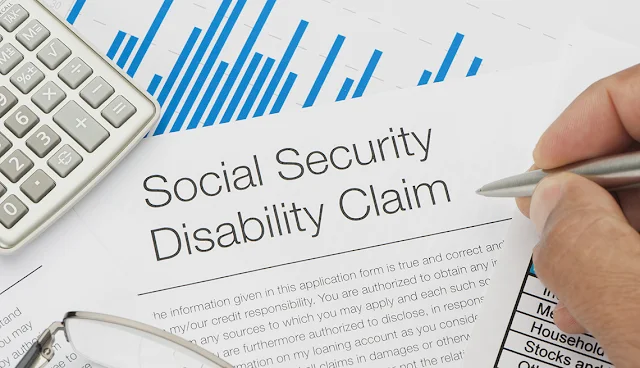Ad Code
Translate
Smart strategies for trading on crypto exchanges
October 20, 2025
Five Do’s For a Healthy Turnover That Bolsters Talent-Retention
October 20, 2025
Discover Honeybee Pharmacy (2025 Guide Important Consumer Tips)
October 14, 2025
What is Ozempic (semaglutide)? (Updated in 2025)
January 30, 2025
Posture Bra: Improving Back Support and Comfort
October 20, 2025
How To Find Suitable Properties In Cyprus?
October 20, 2025
10 Effective Strategies to Improve Domain Authority of Your Website
October 20, 2025
Social Security Disability Benefits: What You Need to Know
Zizo Gala-Mkhize
June 23, 2022

Social Security disability benefits provide essential financial support for people who are unable to work due to a disability. If you are considering applying for Social Security disability benefits, it is important to understand the legal definition of a disability and what evidence you will need to support your claim. In this blog post, we will discuss the definition of a disability and the types of evidence that can be used to support your claim.
Requirements to receive Social Security Disability Benefits
To receive Social Security disability benefits, you must first meet the social security administration's definition of a disability. The social security administration defines a disability as a physical or mental condition that:- Has lasted for at least one year, or is expected to last for at least one year
- Prevents you from working in any capacity
The social security administration uses a five-step process to determine whether an individual meets the definition of a disability.
The social security administration will first consider whether you are working. If you are working and your earnings average more than a certain amount, you will not be considered disabled.
Next, the social security administration will consider whether your condition is severe. A condition is considered to be severe if it significantly limits your ability to do basic work activities. If your condition is not severe, the social security administration will determine whether it meets or equals a listed impairment.
The social security administration has a list of impairments that are considered to be so severe that they automatically qualify an individual for disability benefits.
If your condition does not meet or equal a listed impairment, the social security administration will consider whether it prevents you from doing work that you have done in the past.
If the social security administration determines that your condition does not prevent you from doing work that you have done in the past, they will consider whether it prevents you from doing any other type of work. When making this determination, the social security administration will consider your age, education, and work experience.
If you are found to be disabled at any point in the social security administration's five-step process, you will be eligible to receive social security disability benefits.
If you are found to meet the definition of a disability, you will then need to provide evidence to support your claim. The social security administration will consider your medical records and your testimony to make a decision about your claim.
If you are interested in applying for social security disability benefits, contact a qualified disability attorney today. An experienced disability attorney can help you navigate the social security disability application process and ensure that you have the best possible chance of success.
This is a general overview of the requirements for social security disability benefits. For more information about social security disability benefits, contact a qualified disability attorney today.
Featured Post
DL Mining Launches Ethereum Contract Participation Service, Helping Users Earn $2K Stable Daily Returns
Zizo Gala-Mkhize-
October 20, 2025
Soapie Teasers
Sister Sites
Most Popular
List of 6,000+ Dofollow Commentluv Blogs FREE (Updated 2025)
January 16, 2025
Five Do’s For a Healthy Turnover That Bolsters Talent-Retention
October 20, 2025
How To Choose The Right Place For A Winter Campsite
March 06, 2023
Popular posts
List of 6,000+ Dofollow Commentluv Blogs FREE (Updated 2025)
January 16, 2025
Five Do’s For a Healthy Turnover That Bolsters Talent-Retention
October 20, 2025
How To Choose The Right Place For A Winter Campsite
March 06, 2023
Footer Menu Widget
Created By Blogspot Theme | Distributed By Gooyaabi Templates

Social Plugin